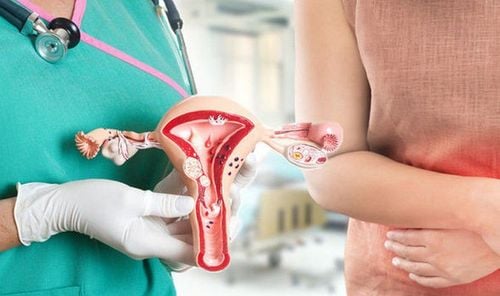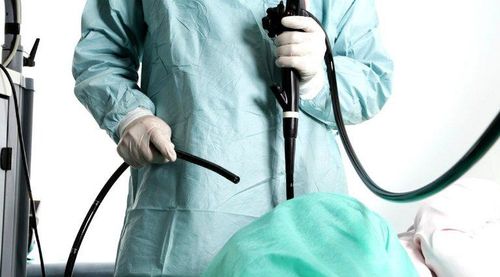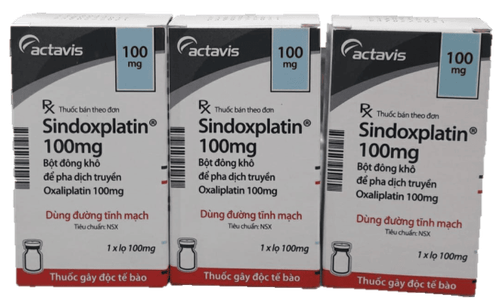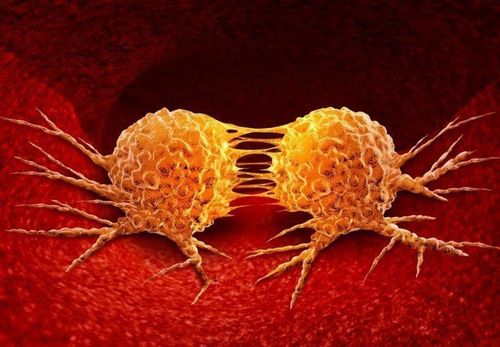This is an automatically translated article.
Precancerous mucosal lesions of the gastrointestinal tract exist in various forms such as inflammation, polyps, ulcers, dysplasia, etc. Depending on the severity and type of damage, the risk of developing cancer is determined.
1. Common precancerous mucosal lesions
Precancerous mucosal lesions can be found throughout the gastrointestinal tract, from the mouth to the rectum.
Common precancerous warning mucosal lesions of the upper gastrointestinal tract are Barrett's esophagus, chronic gastritis with or without HP, atrophic gastritis, intestinal metaplasia of the gastric mucosa, epithelial dysplasia and polyps.
Meanwhile, the most common precancerous mucosal lesions of the lower gastrointestinal tract are adenomas (tubules, tubules, and villi), inflammatory bowel diseases (including Crohn's disease and ulcerative colitis), Chronic infections and hereditary non-polyposis colon disease.
2. Is it true that precancerous lesions will sooner or later become cancerous?
Precancerous mucosal lesions are the transition from a normal organ to a cancer. People who are diagnosed with pre-cancer often have anxiety, haunted by the feeling of being tied in a bomb waiting to be activated.
However, the following statistics may alleviate some of the anxiety. In Vietnam, the rate of people with gastric mucosal atrophy turning into gastric cancer is only about 0.1%, intestinal metaplasia 0.25%, mild dysplasia 0.6% and severe dysplasia 6%.
After 40 years, out of every 100 patients with intestinal metaplasia, only 10 will develop stomach cancer. And in 10 people with stomach cancer, if detected early, it can be completely cured.
The risk of going from precancerous to cancerous depends very much on the severity and spread of the affected area. Cases of dysplasia should be monitored more closely than mucosal atrophy and intestinal metaplasia because of the higher risk of progression to cancer.
In addition, the development of endoscopic techniques combined with the procedure has helped many patients to be thoroughly treated right from the pre-cancerous stage, in which the typical technique is submucosal tomography technique. ESD endoscopic digestion.
Many people think that HP infection will sooner or later lead to stomach cancer. However, the results of a global study have confirmed that 50 out of 100 people are infected with HP, but only 1% develop cancer.
SEE ALSO: The leading expert of the Japanese Cancer Institute trained in gastric cancer treatment at Vinmec Times City
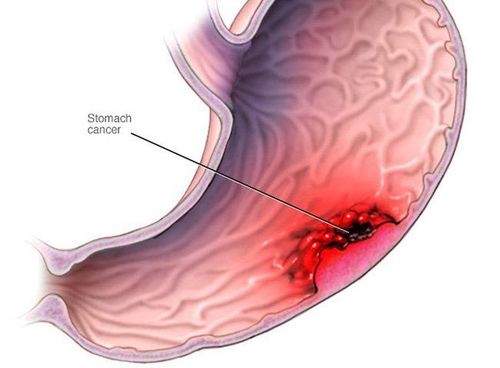
Tổn thương niêm mạc tiền ung thư là giai đoạn chuyển tiếp từ một cơ quan bình thường thành ung thư
3. Measures to prevent pre-cancer from progressing to gastrointestinal cancer
Routine cancer screening: Screening helps patients understand the condition of the digestive tract and quickly resolve if there is a disease such as colon polyp, stomach ulcer, enteritis, etc. In addition, with mild conditions that do not require surgery, you will be consulted or prescribed by a doctor to better control the disease. Maintain healthy eating habits: Limiting red meat intake to 160g/day and more than 5 times/week increases the risk of colon cancer 3 times higher than the general population. Limit fried, grilled, smoked, and processed foods, alcoholic beverages, and tobacco. Increase fiber-rich foods such as vegetables and fruits as they help increase folic acid consumption, lower colonic pH, and increase production of short-chain fatty acids and anti-inflammatory microelements. oxidize. Physical activity: Physical activity, movement or exercise will reduce the risk of gastrointestinal cancer. Precancerous mucosal lesions of the gastrointestinal tract exist in many different forms. Depending on the severity and type of damage, the risk of developing cancer is determined.
Vinmec International General Hospital is a famous clinic with a team of well-trained doctors in early gastrointestinal cancer diagnosis and treatment. Vinmec is equipped with the most modern digestive endoscope system of Olympus, one of the best brands today, including machines being treated like the Olympus CLV 190 endoscope.
The advantage of endoscopes is that they have a narrow band of light (NBI), and NBI endoscopic images have high resolution and contrast, making it easier to detect, screen and diagnose gastrointestinal cancers. at an early stage. Accordingly, depending on the nature of the lesion, the patient will be prescribed mucosal resection (EMR) or submucosal dissection (ESD) through flexible bronchoscope without having to undergo surgery.
EMR
The principle of Endoscopic Mucosal Resection (EMR) is to lift the lesion above the underlying muscle layer so that the lesion can then be safely resected, this method is very useful in the treatment of early-stage cancerous lesions, sessile polyps, and dysplastic tumors.
This method has been conducted in Japan since 1980s specifically:
2 main techniques are suction - cutting, or lifting - cutting with injection under the NM. EMR historical criteria (JPCA): convex ≤2cm, flat or concave ≤1cm; cancer limited to mucosa Limits: Limited in size and location, incomplete resection, high recurrence ESD
This method has been applied in Japan since the 1990s and is now widely applied worldwide
The technical principle is to mark the lesion; submucosal injection, circumcision and submucosal dissection.
The advantages of this method are:
Removal of early cancerous lesions at any location, no size limitation. Enbloc cutting (whole array) evaluates the bottom and side sections; Prognosis and next treatment plan This is minimal intervention, improving the quality of life for patients. The survival time is not different with the surgical method Expanded technique can treat submucosal tumors of the gastrointestinal tract (leiomyoma, carcinoid tumor, fat...) without surgery.
Please dial HOTLINE for more information or register for an appointment HERE. Download MyVinmec app to make appointments faster and to manage your bookings easily.





